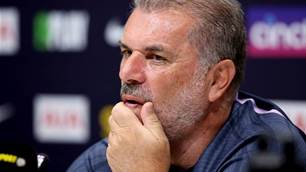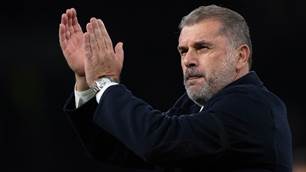Matthew Galea kicks off his new Premier League blog with a look at how Nasri has left the bitterest of tastes in Arsenal's mouth.
Matthew Galea kicks off his new Premier League blog with a look at how Nasri has left the bitterest of tastes in Arsenal's mouth.
It's been a tough summer for Arsene Wenger. Losing a captain and a truly world class talent - an ever declining breed at the Emirates - would have been tough enough, but to lose Nasri after watching him shamelessly court himself to other clubs, including loathed rivals Manchester United and cash loaded Manchester City, is a potentially season crushing blow. As captain of Arsenal Football Club, Cesc’s loyalty could possibly come into question, but his departure was one made with dignity and with respect. Samir Nasri’s on the other hand, was anything but.
Fabregas, who Arsenal plucked from the Barcelona youth system for nothing, this month sealed a £35 million transfer back to the Catalan, ending one of the most protracted transfer sagas in recent memory. It signalled the end of a near three year pursuit, a length which was owed as much to Fabregas’s humility and acknowledgment of his responsibility in the short term to Arsenal, as much as it was about Wenger’s refusal to sell.
We’ve seen it countless times before, and Samir Nasri is doing his best to show us once more, player power in the game is immense. Fabregas could have shut up shop and succumbed to an “illness” and forced a move back home as early as 2008. He could have criticized the club, the manager for holding him in London, but he didn’t. He took on the captain’s armband after Gallas’s spectacular fall from grace, and went about leading Arsenal to the best of his ability. Sure, he wasn’t the fiercest of leaders, and there might have been better options, but he took on the task at the tender age of 22, and respected the club’s decision to reject Barcelona’s not so subtle approaches.
Samir Nasri’s exit from the club has been a saga which thus far has lasted a third of the time but one that’s been three times as painful for the club. Fabregas’s move to Barcelona always had a hint of inevitability about it, but Nasri’s exit, at a time where Arsenal desperately need a player with his game-changing ability, is almost exclusively the construction of Nasri’s own will, and with only a year left to run on his contract, the Frenchman held all the cards. What’s more, when a player combines that sort of power with a complete lack of consideration or respect for what the club might need in this time of turmoil, or the fans who have paid top money to watch him play over the last three seasons, any hope of a clean exit seems lost. Nasri wanted out, and he did not care whose toes he had to step on to have his way.
What becomes even more shocking about the whole saga is the way Nasri attempts to portray himself as the victim. Like the centreback who ludicrously defends himself after a bone crunching foul, Nasri pleads ignorance and speaks of “disrespect” from fans who speak ill of him. The irony is almost enough to make you cringe.
Refusing to negotiate with Manchester United on principle, and a lack of progress over an agreement for a new contract Manchester City was always Nasri’s most likely destination, a move which was confirmed this week.
Nasri’s conduct really left him little way back into the hearts of Arsenal supporters and his conduct since means no hero's return beckons for him. His attempts at diplomacy on Twitter, thanking his team mates and Wenger for making him the player he is today, demonstrated a lack of class. Actions speak louder than words, Samir. Nasri’s snide remarks about the Arsenal supporters, who he claims “lack passion” since moving to the Emirates, were both unnecessary and provocative, particularly from a player who never played at Highbury. Ironically, it is a statement which will probably only serve to strengthen the passion of the Arsenal supporters, when the Frenchman returns to the Emirates on December 17.
The shame here, of course, is that Nasri could have been a real leading light for Arsenal this coming season. He could have sealed himself legendary status with Arsenal, he could have been the beacon of hope in these times of uncertainty at the Emirates, but instead he has become a player who is detested as passionately as he was loved. Fabregas will be remembered fondly by those who adored him in his time at the Emirates, but Nasri will exist only as a target of vitriol and anger.
Related Articles

Postecoglou looking to A-League to 'develop young talent'
.jpeg&h=172&w=306&c=1&s=1)
Big change set to give Socceroos star new lease on life in the EPL













